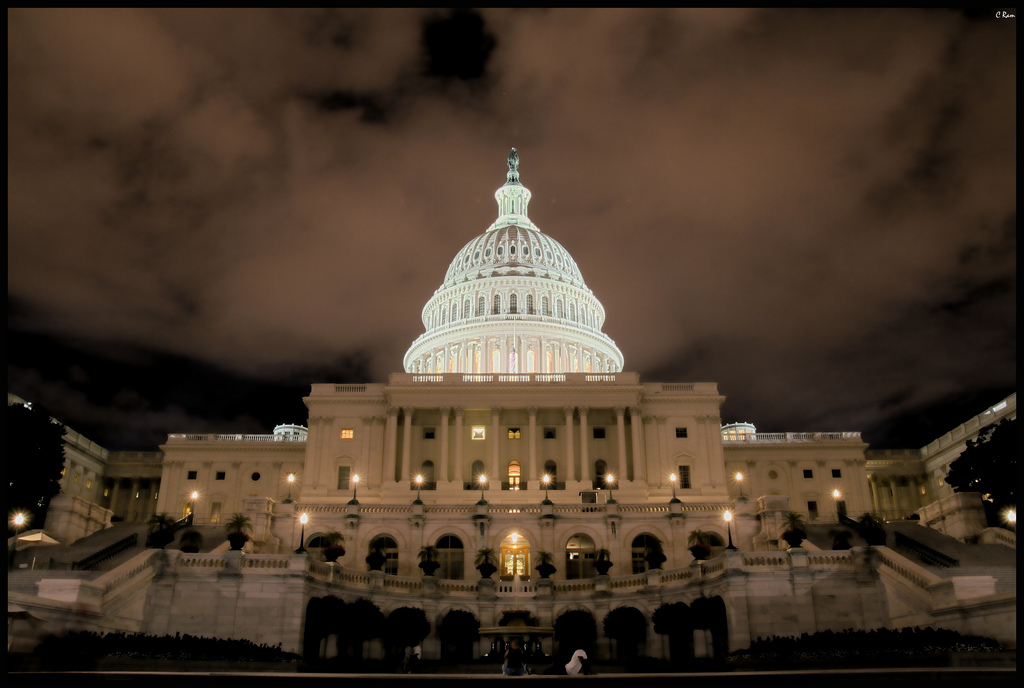By: Eli Watkins

Politicos are following this fall’s midterm elections with all the tenacity soccer fans gave the World Cup this summer. By many standards, these elections are particularly exciting. For one, they may be the most expensive midterm elections in U.S. history, with Kentucky’s U.S. Senate race alone projected to cost over $100 million. The races are also close in many places. Polling aggregators have projected Republicans to win the Senate, but only by narrow margins. Especially given the recent shakeup in Kansas that made a dependably Republican state competitive, the balance of the U.S. Senate looks like it could change on the outcome of a lopsided coin toss. This election cycle has taken many twists, from a plagiarizing senator dropping out of his race to the experimental funding ventures of a Harvard professor and a late night talk show host. From the big picture to the state-by-state happenings, this is a nail biter of a cycle.
Meanwhile, our current Congress and its past couple iterations have been characterized by incompetence and inaction. When it has come to problems both global and domestic, Congress has opted to do mostly nothing. Sure, there have been many speeches and proposals, even a few filibusters. But outside of a few confirmations, there is not much one can point to in the way of accomplishments. There was that one time a contingent of conservatives shut down the government. Whether or not one agreed with its aims, since it did nothing substantial at a pretty high price, it certainly does not qualify as a productive act. Still, it stands out as one of the few things of significance that actually happened in Congress during the past few years.
Taking these two points together, I wonder if the excitement of these elections has obscured what they are ultimately about. Yes, the midterms might be a grand contest determining the fate of a centuries old legislative body, but if they will result–no matter what the dominant party of the Senate is–in another two year block of idleness, maybe political obsessives like me should join the rest of the public in not caring much about what happens this November.
Sure, there are many interesting races taking place. One already happened, in the sudden, seismic primary defeat of former house majority leader and current financial executive Eric Cantor. Kansas, as mentioned earlier, has become surprisingly competitive given how red it has been. Kentucky has been an expensive and vitriolic contest, threatening to cost the probable future senate majority leader his seat. Of course, Georgia’s contest has kept many of us engrossed. Almost every politically inclined Georgian followed the Republican primary and has continued to hold out hope for Democrat Michelle Nunn or Republican David Perdue. However, in the context of changing Congress, these races do not mean much.
Of course, a few judicial appointments will matter, especially depending on possible changes in the Supreme Court. But there is almost no chance that the partisan alignment of the U.S. Senate will affect partisan polarization or the Republican Party’s absolute opposition to President Obama. The historically unprecedented use of the filibuster will almost certainly continue, even if Democrats are in the minority of the Senate. There is basically no chance, by the way, that Democrats will win enough seats to control the House. So how can we expect Congress to occupy its time?
At the end of the day, our Congress is a platform for grandstanding. After years of political stunts– governments shutdown, old people throwing tea parties, speeches given against brothers named Koch, student loan rates compared to overnight banking rates, lawsuits and God knows what about every other cause du jour at Capitol Hill–who actually expects Congress to do something substantive? Who really cares about the Senate for the next two years besides the people who work there?
None of this is to say that these elections should be inconsequential. Geopolitical conflicts have grabbed headlines and claimed lives with increasing regularity as the last days of summer have passed. The U.S. economy continues to head slowly forward, inching unemployment numbers lower in excruciatingly small increments, offering wages that often have still not reached pre-recession levels. Our immigration system is a bureaucratic nightmare that translates into a humanitarian crisis affecting millions. Disunity between the federal government and the states on a range of issues touches everyday lives, from energy to education. Present a public policy issue, and a responsible Congress should be able to act on it.
But do not expect this Congress, or the one we get after the midterm elections, to do virtually anything about virtually any significant issue. For years now, Congress has been an obstacle to the people of this country and this planet. Different factions have and will spend untold sums to grab control of it. They have and will fight boring fights. When it is all over, and the election results roll in, everyone will look to the real contest in 2016, when something maybe hangs in the balance. Those elections could matter. Which party takes the White House, and likely the Senate with it, will mean something if that translates into a reduction in gridlock. Until that point, I will hold back my enthusiasm. I am an admitted political junkie, but come on, the next Congress? Whoever wants it can take it.
